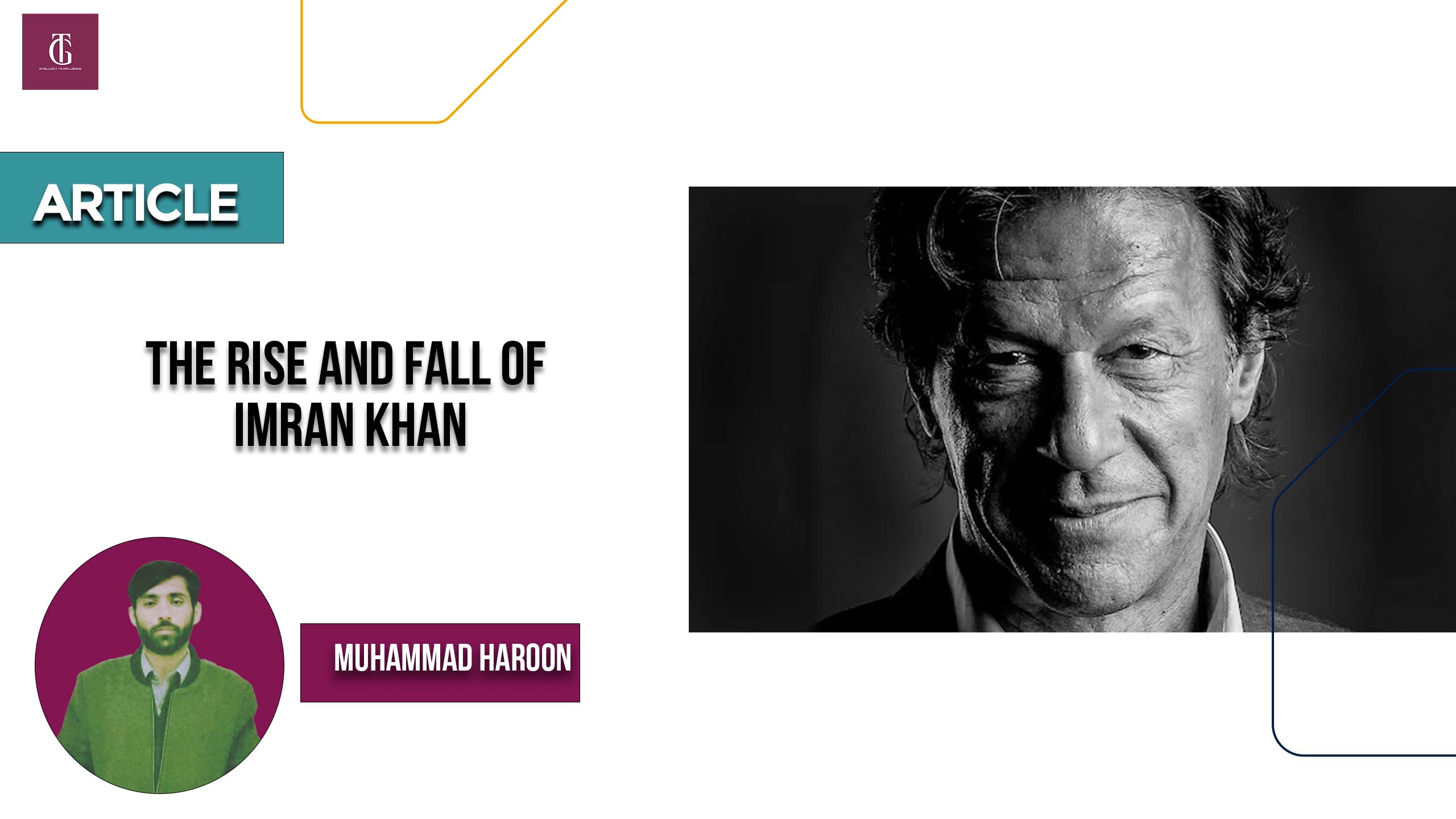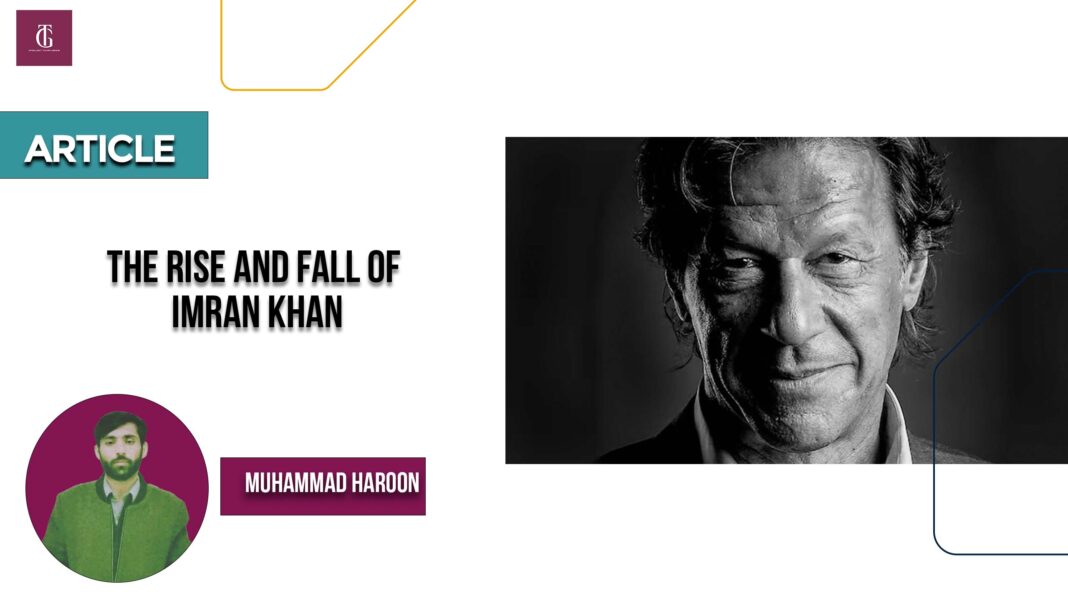
It must be excruciatingly painful for a politician who was raised in the lap of power and rode to power on their coattails to see both his party and himself fall apart. However, politics is that. There is a negative aspect to it, despite the wealth and power it grants to those who benefit. The drawback is always present, but the beneficiaries ignore it while enjoying the moment until the rug is pulled from under them. Having arrived at the zenith in cricket and made a decent name for himself in generosity, Imran Khan left his political profession in 1996. For the next ten years and a half, he stayed in the wild. Throughout the battle to cut out a specialty for himself in legislative issues, he upheld military ruler Gen Pervez Musharraf. Later, he was responsible for the passage of the 17th Amendment to the constitution, which gave the regime’s political system-changing changes to the seal of parliament.
Khan’s 2002 election to the National Assembly was “facilitated” in exchange for support. However, his hopes that the regime would lavishly reward him were dashed. He remained merely a parliamentarian until, in desperate circumstances, he resigned from the Assembly. However, right when he was being discounted, Khan jumped up a major shock by organizing a mammoth public gathering in Lahore – the city where political fortunes are made and lost – in October 2011. He became a force to be reckoned with and gave his previously unsatisfactory political life a metaphorical new lease on life. However, there was no shortage of people who would attribute the sudden and steep rise in his fortune to the same old “invisible hand,” which has a reputation for forming and breaking political alliances, governments, and political parties. By 2008, the PML-Q, the lord’s party that appeared after the fall of Nawaz Sharif in 1999, had been decreased to a posterior and there was a quest for another face that could be blessed.
Regardless, from that point on, numerous politicians joined the PTI. The majority of the new high-profile participants in the party were from the PPP – itself a sinking Titanic in those years – and some of them held pastoral openings in its administration (2008-2013) or generally involved senior situations in the party’s food chain. Those lovely people who might every day of the week play up to Asif Zardari and the Bhutto family for their political smarts and forfeits for a majority-ruled government began offering comparable complimenting comments about their new chief. It barely happened to the party authority around then that these legislators of problematic qualifications would burn through no time in leaving the PTI’s boat on the principal indications of sinking. Perhaps it never occurred to the initiative that their boat might at any point sink, since they had seen just the potential gain of governmental issues.
Khan is said to have been persuaded to march on Islamabad in 2014 over the alleged rigged national elections of 2013. However, Khan was not Mussolini, whose threat to march on the capital could oust the Italian government. From there on, regardless of declaring and executing different designs to remove the public authority – a four-month demonstration at Islamabad’s generally vigorously monitored square; beginning a common insubordination development; putting on large public gatherings in major cities; Khan’s campaign was unsuccessful, and he threatened to shut down the entire nation. However, the movement significantly weakened the civilian establishment, which many believe was the dharnas’ hidden purpose.
In 2018, Khan’s party emerged victorious in the contentious national elections. He finally had possession of the gold pot he had so desperately desired. That, yet as top state leader too he found not a solitary card stacked against him. On a single page, all of the institutions were The opposition, despite its size, was fighting for its existence with its top and second-tier leadership in and out of prison as the “corrupt” accountability movement, which was the tenet of Khan’s politics, was in full swing. The hybrid arrangement was praised by mainstream media which was largely criticized and a social media that was fully managed.
The economy, which was still falling apart, was the only problem. However, Pakistani governments are rarely undermined by the economy. So why bother? In any case, without authentic strains between the critical partners and with no resistance worth the name, the nation appeared to have arrived at the ‘finish of history,’ when each and every individual who matters figures they will live cheerfully until the end of time. It’s when humans start to see themselves as undying, dwarfs extravagant themselves to be monsters, and the fleeting is taken for the withstanding. Politics is viewed as the most fascinating and enthralling of all games because it can be played without fear of losing, or as a bed of roses where one can relax and let their imagination run wild.
Until the passing of time, the train’s youth, power, and glory instill a sense of invincibility. The hybrid arrangement after 2018 was shaken and eventually collapsed under its own weight, despite its seemingly flawless tectonics. The self-described man of destiny, on the other hand, was not doomed. He continued to rant and rave in a way that no one else had the audacity or permission to do, offline and online; The party remained intact, winning successive by-elections and receiving consecutive favorable court rulings. That multitude of variables joined to make the feeling that his subsequent coming was around the corner. On May 9, The feeling of power went wild, winding up looting and scouring state images in various pieces of the country. However, the red line was crossed in the most bizarre manner in Lahore, the city where the PTI first emerged in 2011. The violence on May 9 marked the beginning of the PTI’s unraveling. The ensuing days saw a few senior office conveners quit the party in a steady progression, the vast majority of them have invested a concise energy in jail and subsequently having their rite of passage in governmental issues. These deserters, who only knew one way to do politics, have mostly joined a new party that is ready to use the PTI’s political capital.
It has been a novel experience for the highest levels of PTI leadership. Previously, they were accustomed to taking other political parties’ heads, to use a Cricut expression, but now they were in a sticky situation facing a hostile spell. They have finally discovered the dark side of politics. As the previous head of the state, Zafarullah Jamali commented after his matter-of-fact leave, “The people who carry you to power can likewise drive you out. Politicians in our region enjoy the privilege of having nine lives. They always make a comeback, whether they are removed from power, disqualified, imprisoned, or exiled. Benazir Bhutto and Nawaz Sharif were both fired twice and sent to exile, but they both came back. However, after her death, Bhutto would have become state head for the third time – an accomplishment Sharif achieved in 2013. Sharif, who is currently disqualified and living in exile, may even improve his record.
Will Khan also see a re-visitation of force following a couple of years? Politics is similar to a card game in which a card discarded now may become the winning card later. However, it’s possible that he will never be able to regain all of the influential people’s trust.






